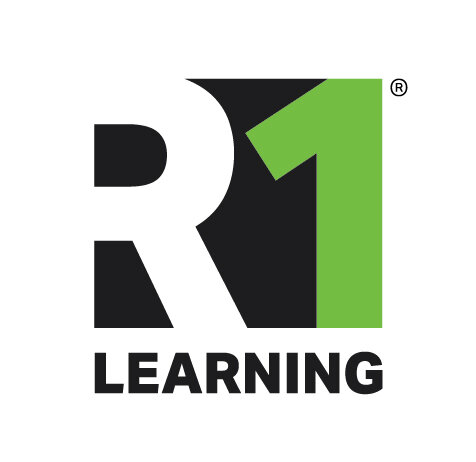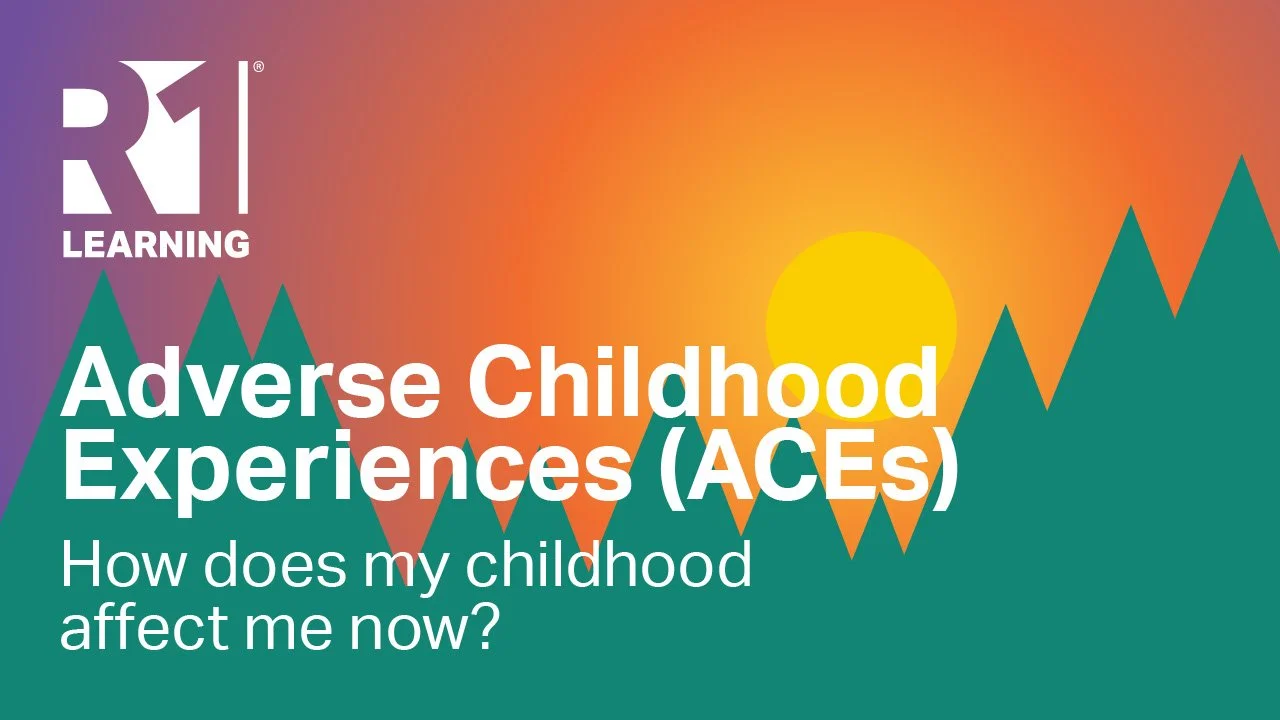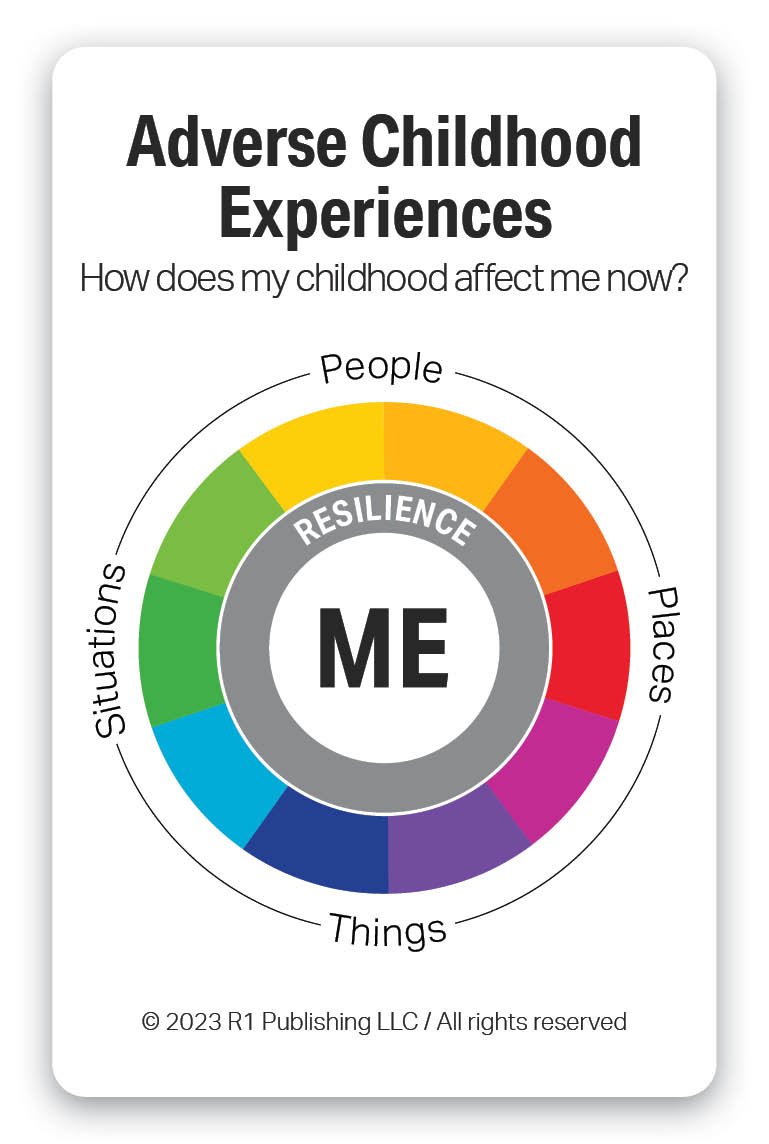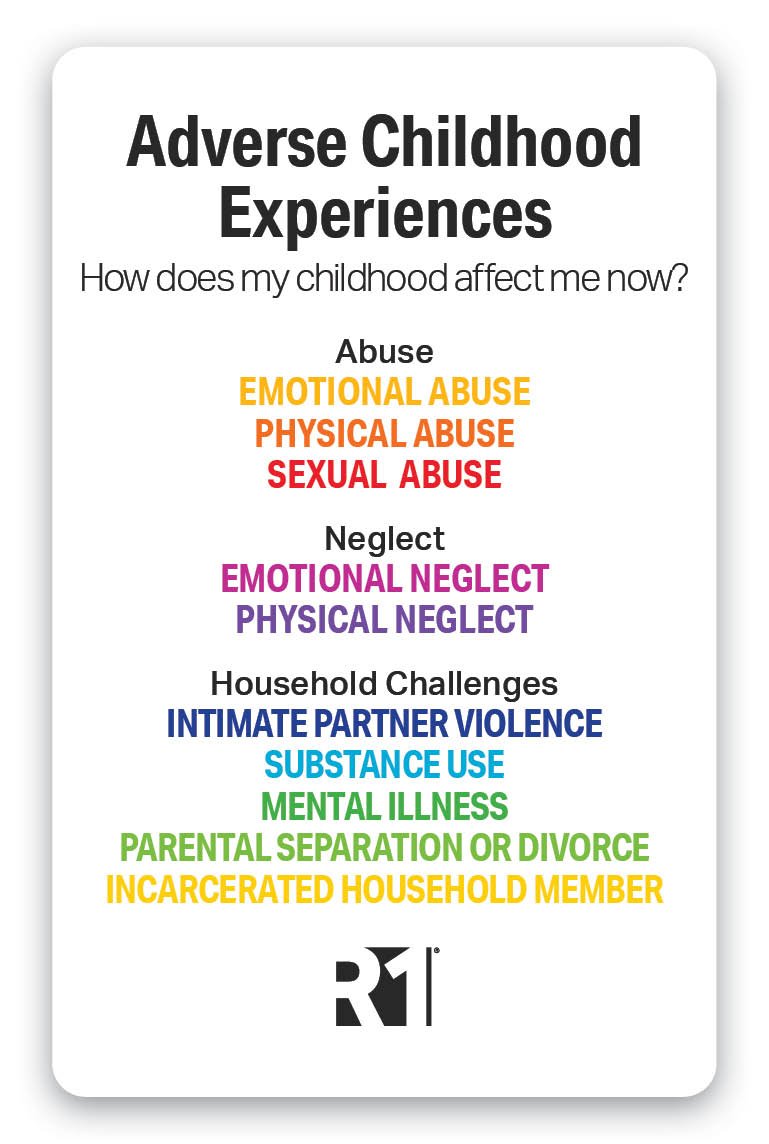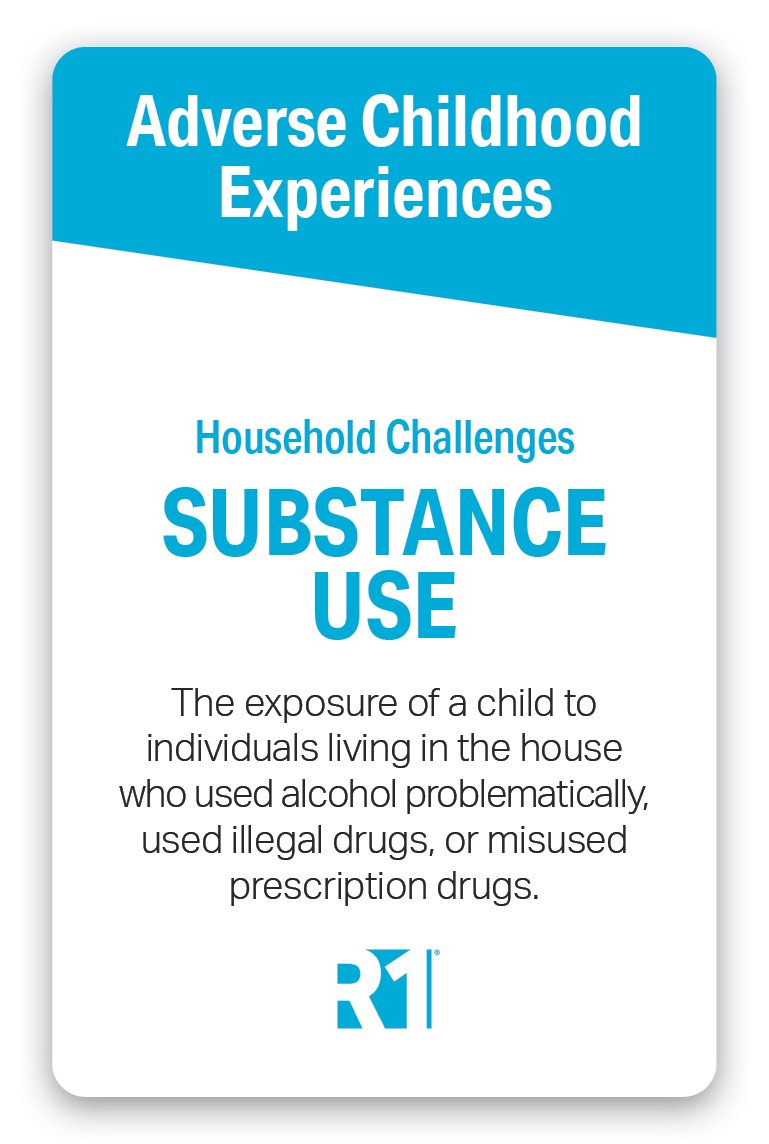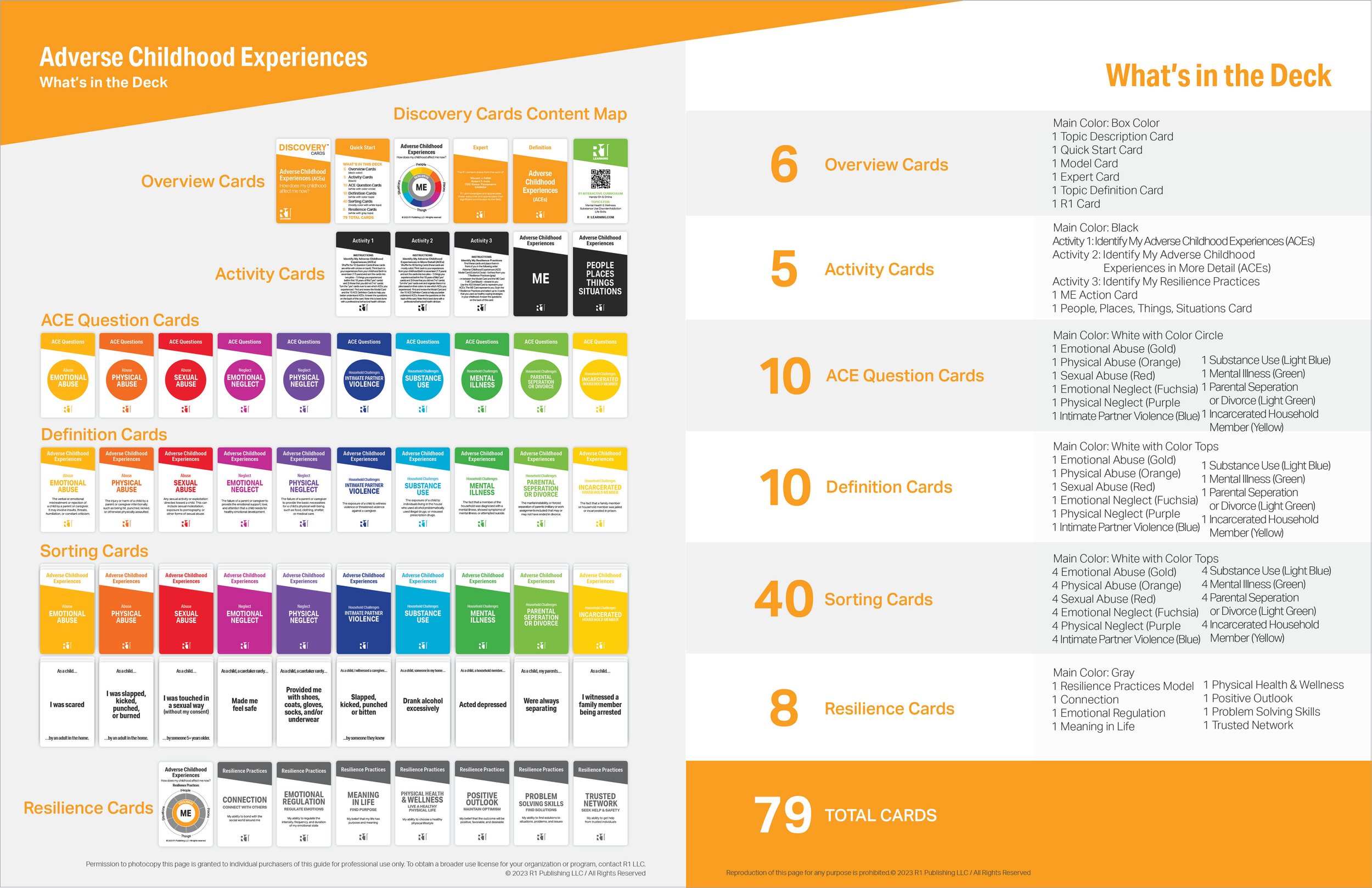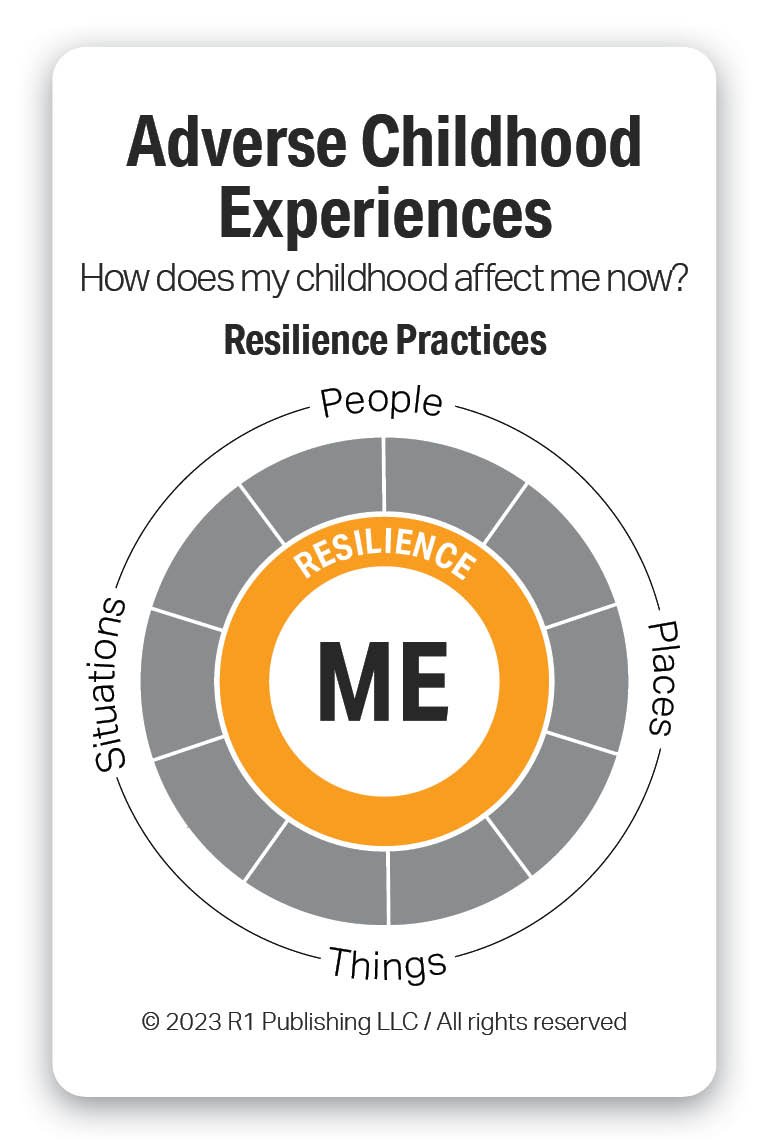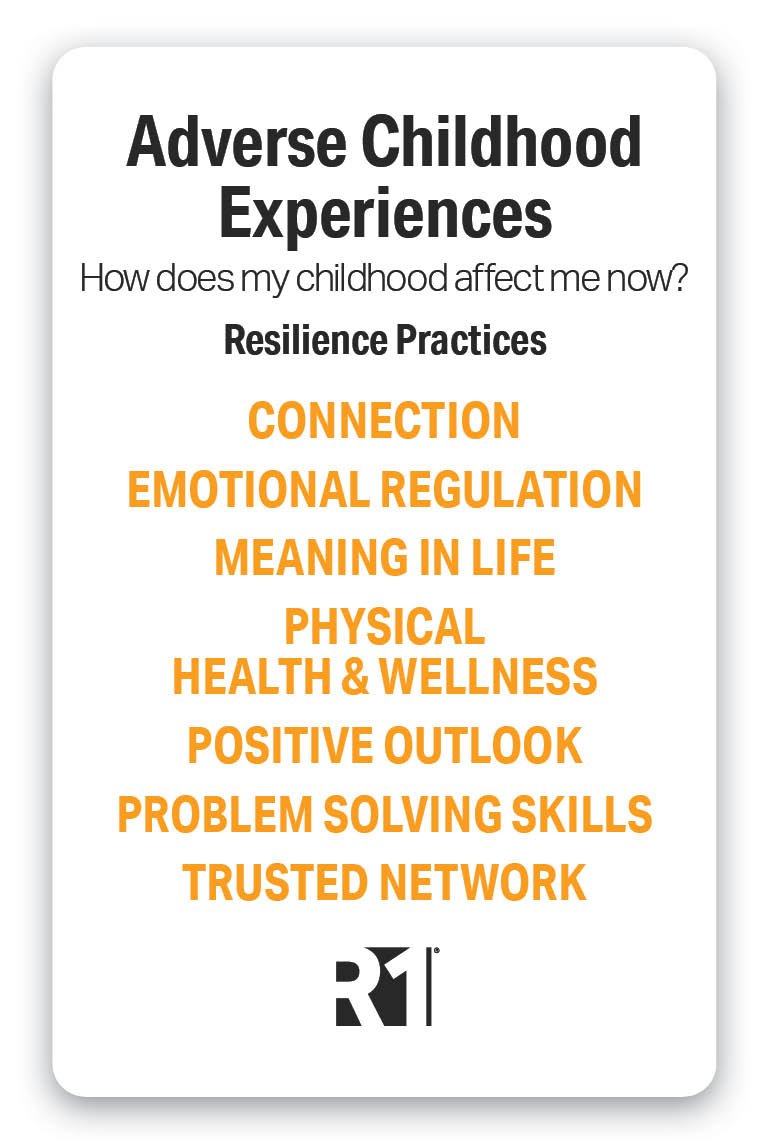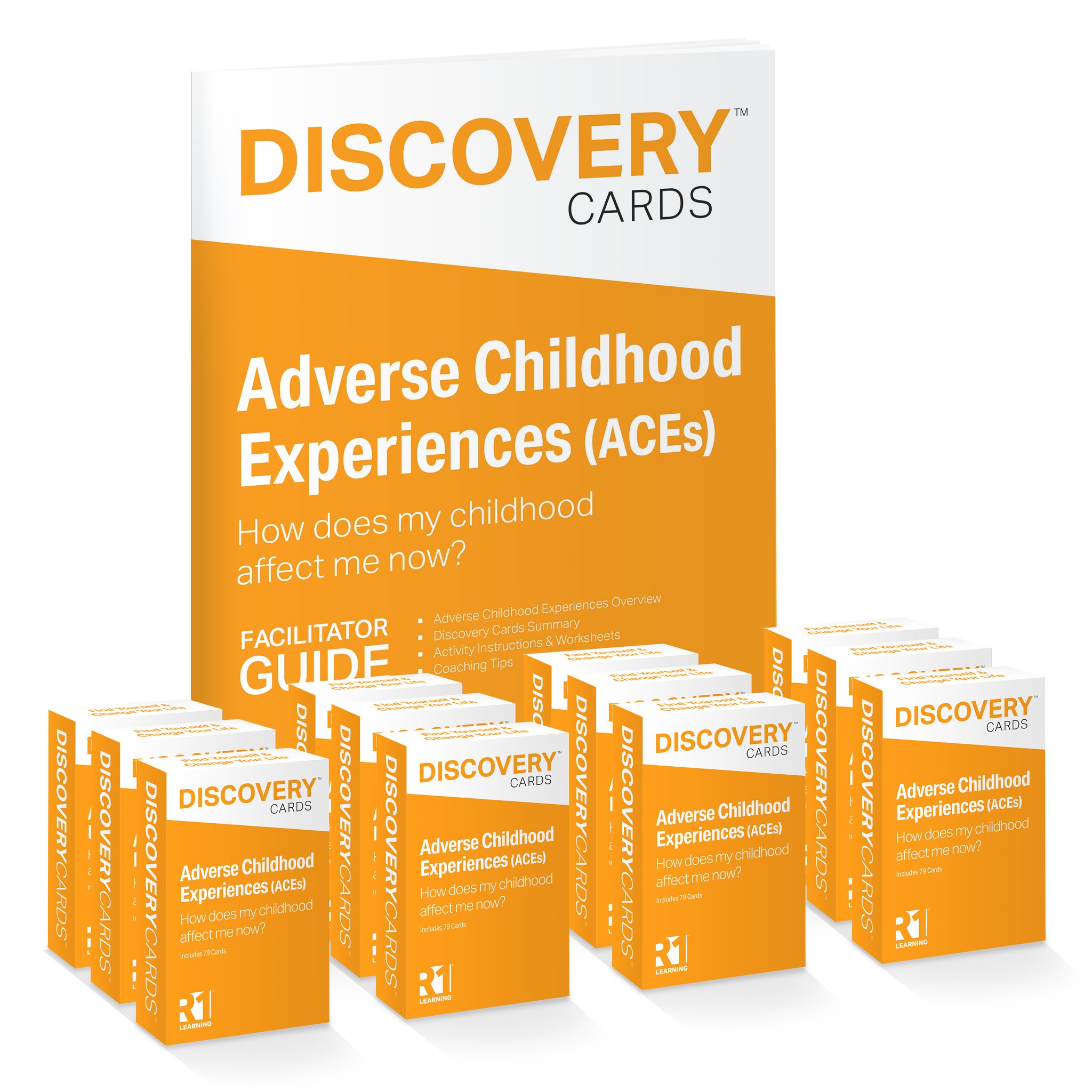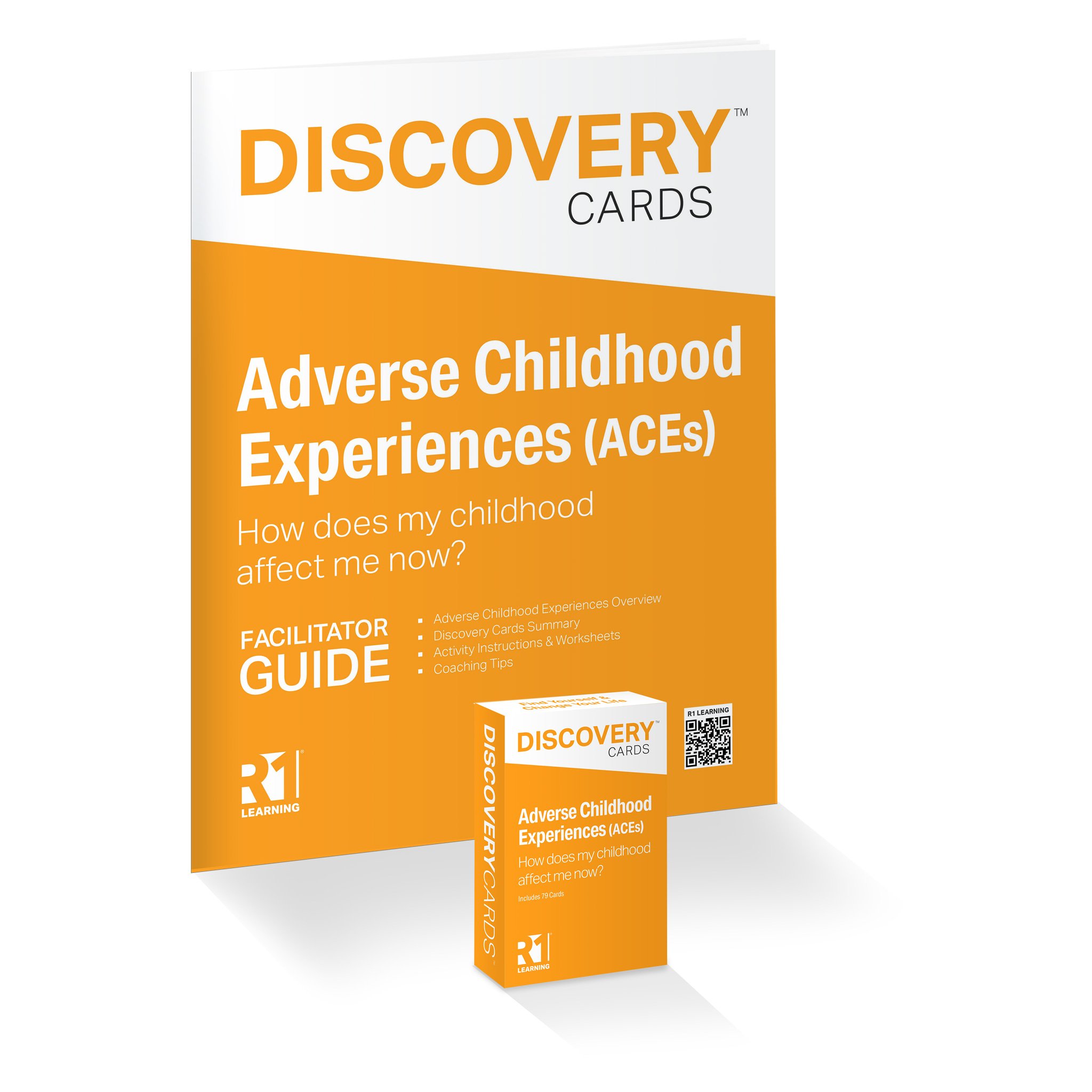10 Adverse Childhood Experiences (ACEs) — How Does My Childhood Affect Me Now?
"What happened?" "How do my childhood experiences affect me now?" are questions for individuals to explore in order to identify traumatic experiences and get help. The experiences one has during childhood (from the ages of 0 to 18 years) impacts physical, psychological, and emotional wellness throughout one's adult lives. Understanding the nature of these experiences can help individuals realize where current emotions and behavior stem from and how they can lead to unhealthy behavior, including substance misuse, social relationship issues, and problems maintaining healthy habits, employment, financial stability, and safe housing.
I was first introduced to adverse childhood experiences (ACEs) in 2019 by Jamie Freeman, the first certified Peer Recovery Coach at the Psychiatric Institute of Washington (PIW), A Universal Health Services Hospital and Phd student at the time. Our new ACEs Discovery Cards deck is dedicated to Jamie to honor her work and passion for ACEs. Jamie used every opportunity to learn about and educate others in the Washington DC metropolitan area on the importance of ACEs prior to her early death in 2021. Her passion for the topic was inspiring. I attended several of her trainings and always walked away with a better understanding of trauma and increasing respect for this topic. Our hope is that R1’s ACEs Discovery Cards deck will continue Jamie’s work and increase the knowledge, skill, and effectiveness of the workforce to uncover ACEs in thousands of individual while practicing trauma informed care principles.
The purpose of today’s post is to highlight ACEs, present the basics, and prepare you for what’s next on R1’s topic roadmap, Trauma Informed Care. A special “thank you” and “hat’s off” to Sandy Rivers with Authentic Trainings LLC for her collaboration with R1 for both of these topics. Her knowledge and experience have been invaluable.
For starters, the CDC-Kaiser Permanente adverse childhood experiences (ACE) study is one of the largest investigations of childhood abuse and neglect and household challenges and later-life health and well-being. The original ACE study was conducted at Kaiser Permanente from 1995 to 1997. Over 17,000 Health Maintenance Organization members from Southern California receiving physical exams completed confidential surveys regarding their childhood experiences and current health status and behaviors. ACEs can include physical, sexual, and emotional abuse, neglect, parental mental illness, alcohol/substance use in the family, divorce, incarceration, and domestic violence. An individual may have had direct experience with these traumatic events or witnessed the events happening to someone they loved.
For background, trauma is held in the body, and ACEs produce toxic stress that impacts child development and reduces the individual’s ability to respond to stress, causing perceived threats in common situations. Individuals with high ACE scores can have difficulty regulating their emotions and often exhibit fight-flight-freeze responses that impair their personal and social relationships.
Everyone experiences some adversity in childhood. The ACE Study discovered that ACEs are common, and nearly two-thirds of individuals who enrolled in the study reported at least one ACE, and 16% reported four or more ACEs. Women and minorities showed a higher likelihood of having four or more ACEs.
When trauma happens during childhood development, it can stop or interfere with brain development, impacting physical, emotional, social, and educational development and reducing the child’s ability to cope with adversity. If you are up all night listening to your parent’s fight, it is really hard to focus and learn the next day at school.
The study’s conclusions showed a direct relationship between the number of ACEs and negative health and well-being outcomes over one’s lifespan. If one has four or more ACEs, you are more likely to experience:
Injury, including traumatic brain injury, fractures, and burns
Mental health, including depression, anxiety, suicide, and post-traumatic stress disorder (PTSD)
Maternal health, unintended pregnancy, pregnancy complications, and fetal death
Infectious disease, human immunodeficiency virus (HIV), sexually transmitted diseases (STDs), Hepatitis, contagious skin or blood infections
Chronic diseases, cancer, and diabetes
Risky behaviors – alcohol and substance abuse, unsafe sex
Opportunities – Education, occupation, income
Uncovering and understanding one’s ACE score, and getting help, can lead to better health outcomes. So what are the ACEs?
Explore R1 Discover — Interactive Engagement Tools
Adverse Childhood Experiences (ACES) Defined
Adverse Childhood Experiences (ACEs) are potentially traumatic events that occur within the first 18 years of life. ACEs can include experiences of abuse, neglect, or violence, as well as aspects of a child’s environment that undermine their sense of safety and stability, such as parental separation, substance use, or mental health problems within the household.
Emotional Abuse: The verbal or emotional mistreatment or rejection of a child by a parent or caregiver. It may involve insults, threats, humiliation, or constant criticism.
ACE Question: Did a parent or other adult in the household often or very often, swear at you, insult you, put you down and/or threaten you in a way that made you think that you might be physically hurt?
2 of 4 Discovery Cards Examples:
As a child…
I was scared
I was told I was no good
…by an adult in the home
Physical Abuse: The injury or harm of a child by a parent or caregiver intentionally, such as being hit, punched, kicked, or otherwise physically assaulted.
ACE Question: Did a parent or other adult in the household often or very often, push, grab, slap, or throw something at you? Or ever hit you so hard that you had marks or were injured?
2 of 4 Discovery Cards Examples:
As a child…
I was slapped, kicked, punched, or burned
I was hospitalized due to an injury
…by an adult in the home
Sexual Abuse: Any sexual activity or exploitation directed toward a child. This can include sexual molestation, exposure to pornography, or other forms of sexual abuse.
ACE Question: Did an adult or person at least 5 years older ever touch or fondle or have you touch their body in a sexual way? Did anyone attempt or have oral, anal, or vaginal intercourse with you?
2 of 4 Discovery Cards Examples:
As a child…
I was touched in a sexual way (without my consent)
I was forced into oral, anal, or vaginal intercourse
…by someone 5+ years older
Emotional Neglect: The failure of a parent or caregiver to provide the emotional support, love, and attention that a child needs for healthy emotional development.
ACE Question: Did you often or very often feel that no one in your family loved you or thought you were important or special? Or your family didn’t look out for each other, feel close to each other, or support each other?
2 of 4 Discovery Cards Examples:
As a child, a caretaker rarely…
Made me feel safe
Told me they loved me
Physical Neglect: The failure of a parent or caregiver to provide the basic necessities for a child's physical well-being, such as food, clothing, shelter, or medical care.
ACE Question: Did you often or very often feel that you didn’t have enough to eat, had to wear dirty clothes, and had no one to protect you? Or your parents were too drunk or high to take care of you or take you to the doctor if you needed it?
2 of 4 Discovery Cards Examples:
As a child, a caretaker rarely…
Provided me with shoes, coats, gloves, socks, and/or underwear
Took me for medical care when I needed it
Intimate Partner Violence: The exposure of a child to witness violence or threatened violence against a caregiver.
ACE Question: Was your mother or stepmother often, or very often pushed, grabbed, slapped; or had something thrown at her? Sometimes, often, or very often kicked, bitten, hit with a fist or something hard? Ever threatened or hurt by a knife or gun or other weapon?
2 of 4 Discovery Cards Examples:
As a child, I witnessed a caregiver…
Slapped, kicked, punched or bitten
Threatened with a knife, gun, or other weapon
...by someone they knew
Substance Use in the Household: The exposure of a child to individuals living in the house who used alcohol problematically, used illegal drugs, or misused prescription drugs.
ACE Question: As a child, did you ever live with anyone who was a problem drinker, suffered from unhealthy alcohol use, or used un-prescribed drugs (street drugs) problematically?
2 of 4 Discovery Cards Examples:
As a child, someone in my home…
Drank alcohol excessively
Used drugs excessively
Mental Illness in the Household: The fact that a member of the household was diagnosed with a mental illness, showed symptoms of mental illness, or attempted suicide.
ACE Question: Was a household member ever depressed, mentally ill, or sent to a mental hospital? Has a family member ever attempted suicide?
2 of 4 Discovery Cards Examples:
As a child, a household member…
Acted depressed
Talked about, or attempted suicide
Parental Separation or Divorce: The marital instability, or forced separation of parents (military or work assignments included) that may or may not have ended in divorce.
ACE Question: As a child, were your parents ever separated (didn’t live together) or divorced?
2 of 4 Discovery Cards Examples:
As a child, my parents…
Were always separating
Divorced or split up permanently
Incarcerated Household Member: The fact that a family member or household member was jailed or incarcerated in prison.
ACE Question: Did a household member ever go to prison, or was constantly in and out of jail?
2 of 4 Discovery Cards Examples:
As a child…
I witnessed a family member being arrested
A family member went to jail or prison
Discovery Cards Toolkit for ACEs Exploration
The R1 Learning System includes a collection of tools for ACEs. Below highlights the What’s In the Deck for our new ACEs Discovery Cards deck. We’ll be including 10 ACE Question Cards for each of the ACEs with deeper exploration with 40 Sorting Cards. Please note the 7 Resilience Practices Cards in gray. These are equally important given our attention to trauma informed care principles. Learn more by linking to the ACEs Topic Collection.
7 Resilience Practices – How Did I Endure, Survive, and Thrive?
As we add tools like ACEs into the R1 Learning System, we have been coached by leaders in the field to highlight and equally focus on resilience. Resilience will be another topic in the R1 Learning System soon. For now, we have included seven (7) Resilience Practices as part of the ACEs toolkit in order to showcase strategies that help individuals overcome the effects from their ACEs. We have provided the list of our Resilience Practices below to give you a glimpse of what categories we include. Details are provided in the topic ACEs Facilitator Guide and Discovery Cards. More to come in a separate post on these too. Note for now that these are most important to focus on when practicing Trauma Informed Care. These represent the tools one uses to endure, survive, and thrive through and long after ACEs occur.
Questions to Explore
Answer these questions for yourself or with your team:
Do you find the adverse childhood experiences (ACEs) Model helpful in thinking about and identifying trauma?
Which ACEs have you experienced (if any)? Have you been able to get help for yourself or a family member?
How does your knowledge of ACEs help you to better pinpoint specific traumatic events of individuals you support? How are these categories helpful?
As you think about the individuals you serve, how will ACES help you to care for, council, coach, and/or direct others to resources of support? Explain.
Do you find the Resilience Practices helpful? Explain.
Which of the Resilience Practices resonates most for you? Which ones do you think will resonate most with the individuals you serve?
What is your major learning or takeaway from the post? Explain.
Thank you for reading this post and participating in this activity. Contact us if you would like to learn more about our Adverse Childhood Experiences (ACEs) solutions and the R1 Learning System. We look forward to hearing from you.
References
V.J. Felitti, R.F. Anda, D. Nordenberg, D.F. Williamson, a M. Spitz, V. Edwards, J.S. Marks, Relationship of childhood abuse and household dysfunction to many of the leading causes of death in adults. The Adverse Childhood Experiences (ACE) Study. American Journal of Preventive Medicine, 14 (4) (1998), pp. 245-258. Link: https://doi.org/10.1016/S0749-3797(98)00017-8
S.R. Dube, R.F. Anda, V.J. Felitti, D.P. Chapman, D.F. Williamson, W.H. Giles. Childhood abuse, household dysfunction, and the risk of attempted suicide throughout the life span: Findings from the adverse childhood experiences study. Journal of the American Medical Association, 286 (24) (2001), pp. 3089-3096
M. Dong, R.F. Anda, V.J. Felitti, S.R. Dube, D.F. Williamson, T.J. Thompson, W.H. Giles.The interrelatedness of multiple forms of childhood abuse, neglect, and household dysfunction. Child Abuse & Neglect, 28 (7) (2004), pp. 771-784. Link: https://doi.org/10.1016/j.chiabu.2004.01.008
Copyright 2023 R1 Publishing LLC / All Rights Reserved. Use of this article for any purpose is prohibited without permission.
Engage and Retain Clients. Train and Retain Your Team.
Adverse Childhood Experiences (ACEs) Discovery Cards and Group Kits
Integrating these tools into your groups will allow individuals to build their own vocabulary, think about these concepts concretely, and put their choices into action. Visit the R1 Store to learn more about a variety of topics. The Discovery Cards are an amazing tool for exploring these topics with individuals or groups.
Here are a few ideas to help you learn more about R1 and engage others on this topic:
Share this blog post with others. (Thank you!)
Start a conversation with your team. Bring this information to your next team meeting or share it with your supervisor. Change starts in conversations. Good luck! Let us know how it goes.
Visit www.R1LEARNING.com to learn more about R1, the Discovery Cards, and how we’re creating engaging learning experiences through self-discovery.
